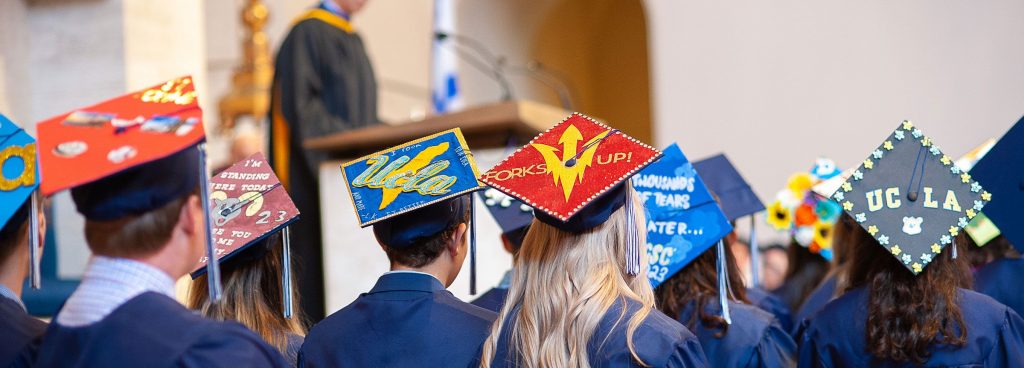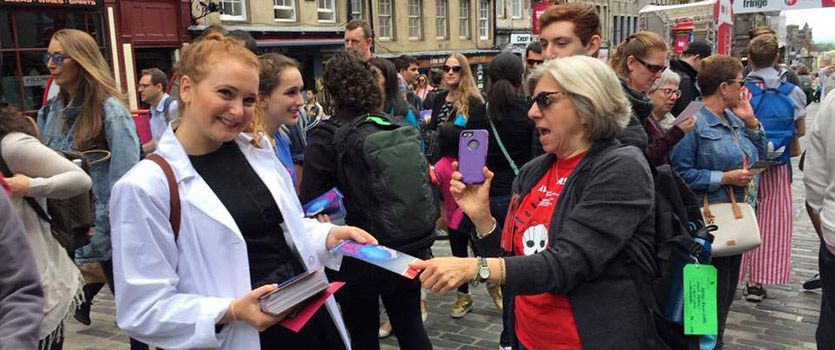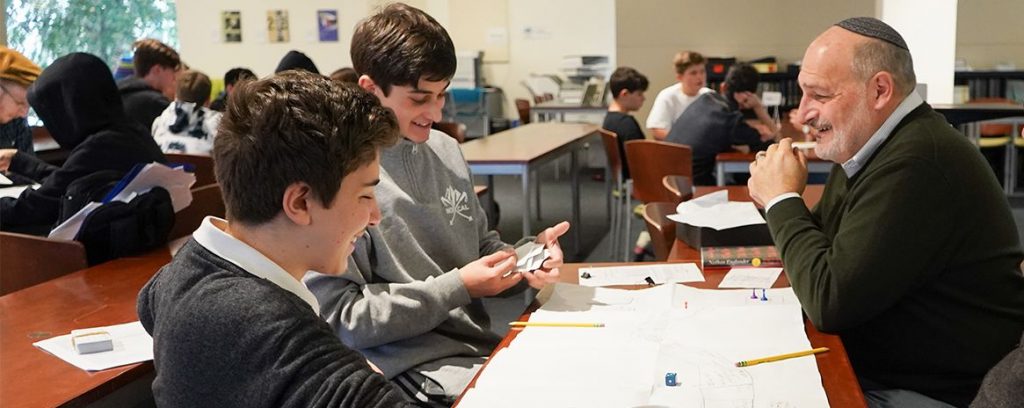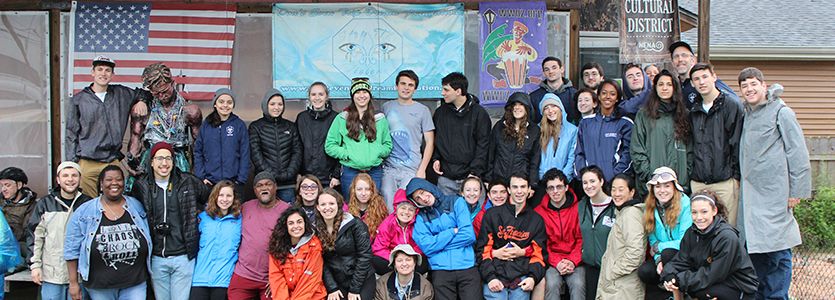Parashat VaYechi
By Adi Alouf | Director of Student and Jewish Life, Jewish Studies Teacher
I spent much of winter break visiting my safta and saba in New York. With each visit, I become more and more focused on asking them questions about their childhood and prompting conversations about their parents and grandparents. This trip, I learned that my great-grandfather used to sit in the back of his music shop in Haifa and cut the pages of the Ha’aretz newspaper to make sure the edges were perfectly straight. I hadn’t realized that newspapers used to have such uneven edges – and also how deep this type of perfectionism runs in my family!
I feel immense gratitude to still have grandparents in my life and to have such a close relationship with them. As they live their 90th year of life and 68th of marriage, I often reflect on all they have given me, and on what I can give them in this stage of their lives.
This week’s parsha, Vayechi, which literally translates to “and he lived,” depicts powerful intergenerational exchanges that mark the final moments of Jacob’s life. These moments provide me with insight into my own relationship with my grandparents and the generations that came before and will come after me.
The text tells us that when the time came for Israel (the text goes back and forth between the names Jacob and Israel) to die, he summoned his son Joseph and asked him to swear that he would not bury him in Egypt, but would carry him out of Egypt and bury him with his ancestors. With a strong sense of responsibility to honor his father’s legacy, Joseph swears to fulfill his father’s last wish – which, in essence, is a request to remain connected across generations.
After this intimate exchange of loyalty and love, Joseph brings his own sons to Jacob’s deathbed. Jacob summons his strength, sits up in his bed, and recalls the covenant and the blessings that God bestowed upon him. Then, he asks to bless Joseph’s sons. Jacob relishes the opportunity to embrace his grandsons. Afterward, Jacob calls over his own sons and imparts his final words to each. These final words consist of blessings, rebukes, truth-telling, and the assignment of specific roles.
This series of generational conversations – these raw exchanges of end-of-life oaths and blessings – invite us to pursue and embrace deep and honest intergenerational relationships, characterized by respect, honor, and loyalty. These are relationships that allow elders to impart their vision for the future and empower younger generations to actively engage with their inheritance and heritage. I strive to be a granddaughter who honors the vision of my ancestors and embraces their blessings.
Both this parsha and my recent time with my grandparents have prompted the following questions for me, which I invite you to reflect on this Shabbat:
- What do you owe your ancestors, and how do you honor or carry forward their legacy in your life?
- What have you received from your ancestors, and what do you hope to continue receiving or learning from them?
- What do you hope to give to the next generation, and what do you hope to receive or see carried forward by them in return?
Shabbat Shalom!









